(Interestingly, I became a Christian while reading this very book in 1979, Anita http://www.anitamathias.com/teenage-atheist.html)
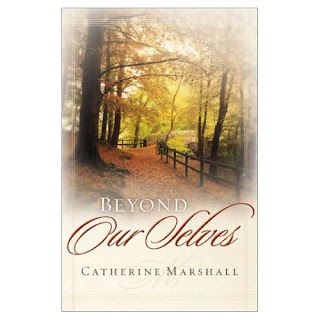 |
| Alice Allsworth |
Anita Mathias: Dreaming Beneath the Spires
Anita Mathias's Blog on Faith and Art

(Interestingly, I became a Christian while reading this very book in 1979, Anita http://www.anitamathias.com/teenage-atheist.html)
 |
| Alice Allsworth |

 Just these two words He spoke
Just these two words He spoke
changed my life,
“Enjoy me.”
What a burden I thought I was to carry–
a crucifix, as did He.
Love once said me, “I know a song,
would you like to hear it?”
And laughter came from every brick in the street
and from every pore
in the sky.
After a night of prayer, He
changed my life when
He sang,
“Enjoy me.”
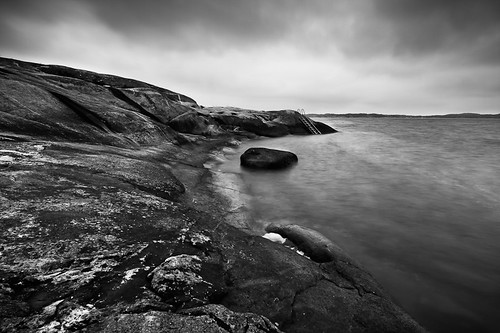

 |
| Joni: An Unforgettable Story |
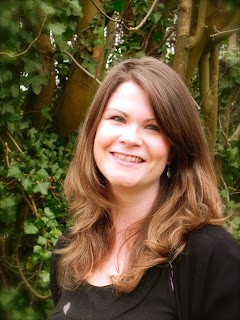 |
| Tanya Marlow |

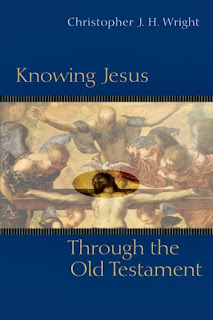 |
| Knowing Jesus Through the Old Testament |
| Leslie Keeney |
You know when you just simply get bored in your spiritual life. The monastics called it accidie. Spiritual sloth or sluggishness. Torpor. Though at a pinch, you can still talk the talk, while your heart says, “Shut up. Fraud.”
It scares me when that happens. I remember reading The Gospel of John around 2003-2004 and it was electrifying. I felt Jesus walked into my bedroom, early each morning, in his majesty and radiance. He spoke to me though that Gospel. Oh how alive it was!
But I am reading it now, and the words which were like an electric shock then, leading me into worship, are not quite as alive. My mind decodes and translates the words. Jesus says “I am the light of the world; whoever follows me will not walk in darkness but will have the light of life,” and instead of worshipping, my mind says, “Okay, so I need not struggle about the balance of writing books and blogging. Or how to lose weight. Jesus is the light. And he will not let me walk in darkness. I will ask him what to do.” Nothing wrong with that, but it sure doesn’t beat worship.
So then, what are we going to do with this Anita, and her cold, dry, dull distracted heart?
I know what I am going to do. And it is, like almost all my spiritual solutions, a monastic solution. Benedict thought of it first.
Lectio Divina. Spiritual Reading. I read books written by men and women who have dwelt far more deeply in the holy places of the Most High.
George Mueller. Hudson Taylor. Bill Johnson. John Piper. Frederick Buechner. John Eldredge. Simon Ponsonby’s “More”. “Joy Unspeakable,” by Martyn Lloyd-Jones. Dallas Willard. Richard Forster. Brother Lawrence. John Arnott. Oh, anything good about experiencing the Holy Spirit.
Ah! See what I was missing. See the joy I was missing. My heart starts beating faster. Excitement floods me again.
I read how Frank Laubach lived in the presence of Jesus though his Game with Minutes. Goodness, so living in the presence of God is that simple? All we have to do is train ourselves to pray through the day. I re-read the lovely books of my friend Paul Miller, Love Walked Among Us and A Praying Life, and my heart beats faster. I want to pray like that!
I browse through my spiritual bookshelves. The Filling of the Holy Spirit. Miracles. Grace, Forgiveness. Prophetic words for the ordinary woman—“all flesh.” Guidance in one’s work or writing. Discerning the will of God. Spiritual treasures: Rubies, diamonds, emeralds of joy and excitement. And here I am drearily reading Proverbs and Leviticus and they are not speaking to me.
I place my dry, distracted heart in the fire of these writers, and it is strangely warmed.
You have made my heart come alive again, dear spiritual writers, friends, forerunners on the Way. And for that, I thank you.
Yeah, indeed this is the way to live. As a child of the Father, hand in hand with Jesus, overflowing with the Holy Spirit, feasting on the bread of life. Allowing ancient vintners, the Trinity and other lovers of God to pour the bubbling wine of joy into my heart.
And I am made new again!

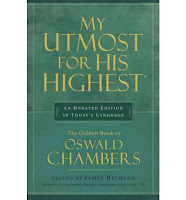 |
| Updated Edition in modern English |
 |
| Oswald Chambers: Abandoned to God |
 |
| One of the CDs inspired by “My Utmost” |
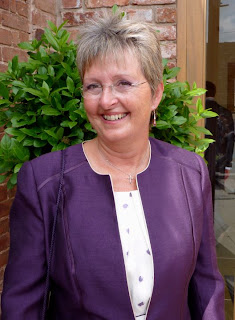 |
| Ruth Bond |

